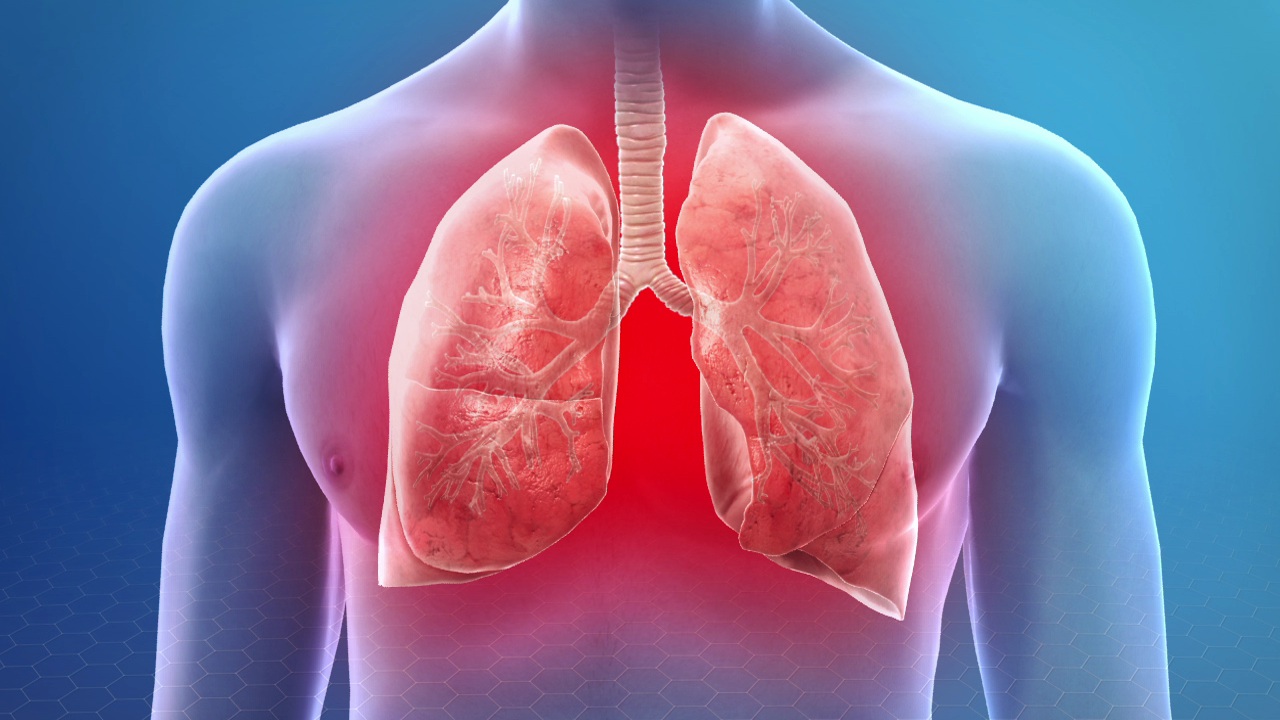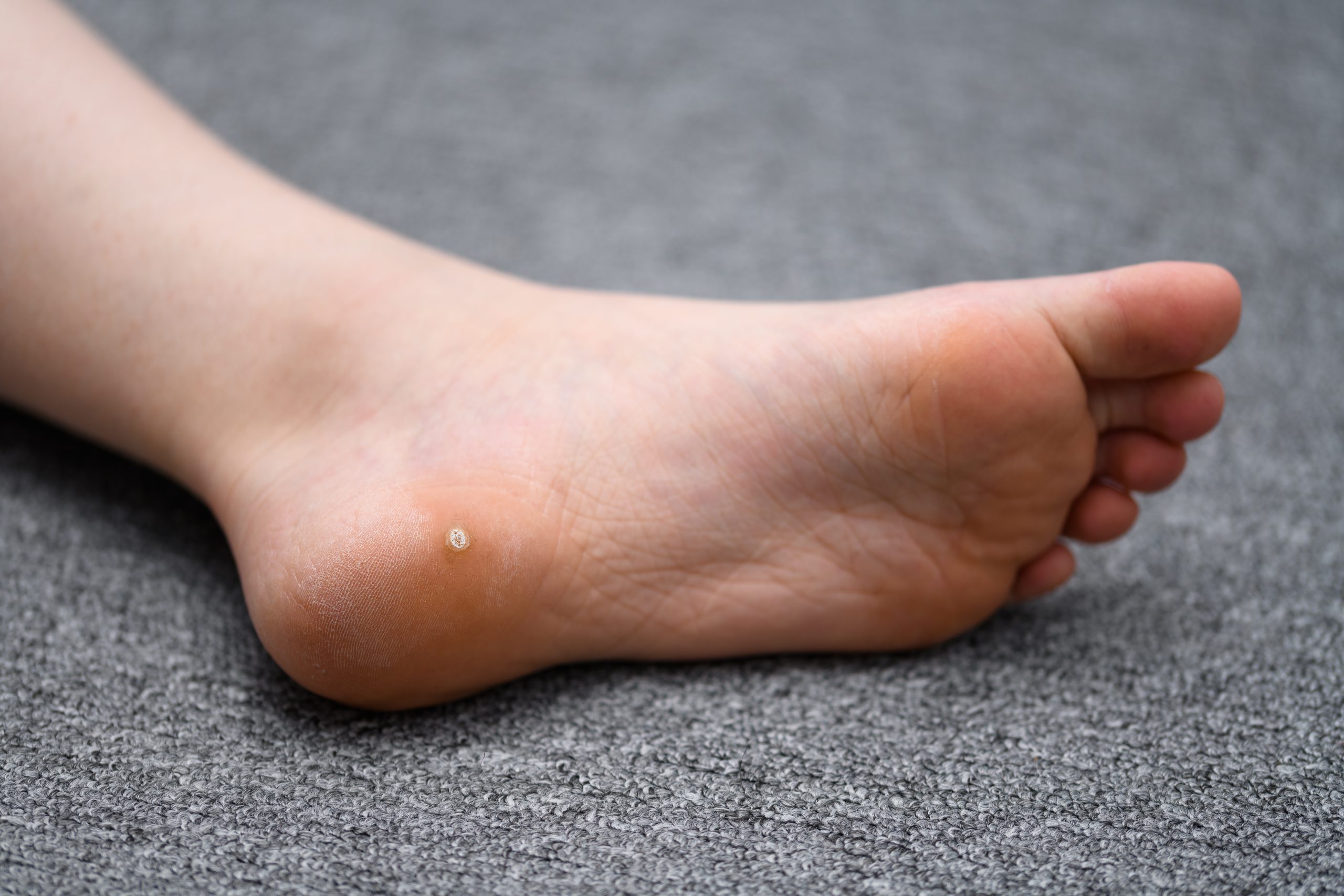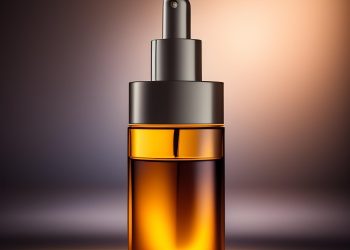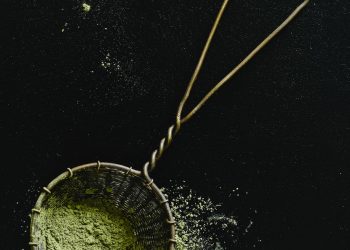Pneumonia is an inflammation of the lungs that may be caused by bacteria, virus, parasite, or fungus [1].
People who have colds or the flu, or those who have long-term or chronic diseases, are likely to get pneumonia because their immune system is usually too weak to fight the infection [2].
The severity of the condition depends on the cause of the pneumonia and the patient’s overall health.
The good news is, there are natural remedies for pneumonia and its symptoms that you can try at home.
In this post you’ll learn:
- Symptoms and traditional medications for pneumonia
- 11 home remedies for pneumonia treatment
- How to prepare and use home remedies for pneumonia
RELATED: 11 Quick-Acting Home Remedies for Pneumonia
Common Symptoms of Pneumonia
- Coughing (either with or without mucus that is green, rusty, or tinged with blood)
- Chest pain when coughing or taking a deep breath
- Shortness of breath
- Shaking or chills
- Fever
- Nausea
- Vomiting
- Diarrhea
- Confusion
- Tiredness or fatigue [3]
For healthy individuals, pneumonia usually goes away on its own after 2 to 3 weeks.
However, if not given immediate medical attention, the condition can be fatal in children, older adults, and people with compromised health or immune system.
Several drugs are available for the treatment of pneumonia but these medications can have negative side effects.
For instance, antibiotics, which have inherent potential dangers of their own, can destroy good bacteria in the gut [4].
This can result in adverse effects on a person’s mental and psychological health, immune system, and digestive processes [4].
Non-steroidal anti-inflammatory drugs (NSAIDS), such as aspirin or ibuprofen can also lead to heart issues, ulcers, high blood pressure, kidney problems, and gastrointestinal bleeding [5].
11 Home Remedies for Pneumonia
1. Astragalus
Astragalus, which belongs to the same family as beans and legumes, has long been known for its ability to boost the immune system [6].
Its antiviral properties make it ideal for treating colds and the flu, as well as preventing upper respiratory tract infection in children with nephrotic syndrome [7].
Astragalus also has anti-inflammatory properties, which was demonstrated in a study on asthmatic mice, where extract from the plant attenuated allergic airway inflammation [8].
Things You’ll Need:
- 1 cup of shredded dried astragalus root
- 1 liter of water
- ¼ cup of rum or vodka
Recommended Direction:
- Soak astragalus in water overnight.
- The next day, place astragalus and water in a pot and simmer for at least 30 minutes.
- Allow the liquid to cool.
- In a separate container, pour in the rum or vodka.
- Add the cooled astragalus and water to the alcohol.
- Drink 1 tablespoon of the liquid twice a day.
2. Coltsfoot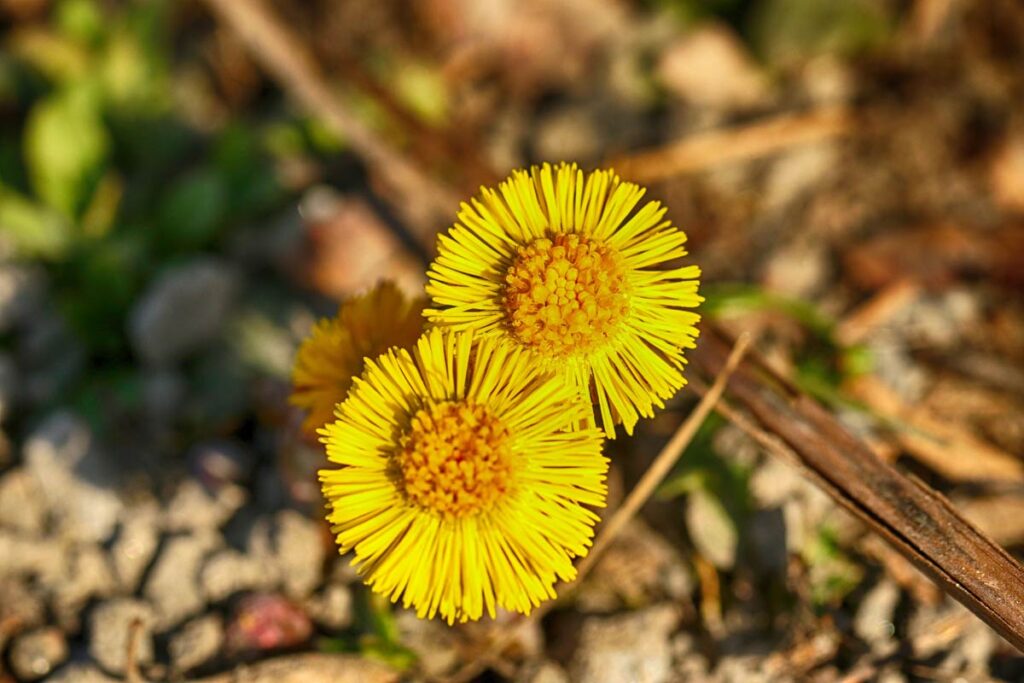
Coltsfoot, or tussilago farfara, is a species of plant that belongs to the daisy family.
Native to parts of western and central Asia as well as Europe, coltsfoot has been used to treat skin disorders, viral infections, colds, fever, flu, and respiratory disorders, including pneumonia.
The perennial’s efficacy in the treatment of such illnesses is due to its antioxidant and anti-inflammatory properties [9, 10]
The results of 2014 study by Zhao et al. even provide scientific evidence for coltsfoot’s effectiveness against tuberculosis [11].
Things You’ll Need:
- 1 teaspoon of coltsfoot leaves or flowers (dried)
- 1 cup of water
Recommended Direction:
- Bring the water to a boil before adding in the coltsfoot.
- Remove from heat.
- Allow the mixture to steep for about 15 minutes.
- Strain the liquid into a cup.
- Drink morning, noon, and night for a maximum of 1 month only.
3. Echinacea
Echinacea is a type of cone-flower that is native to North America.
Traditionally known for its ability to prevent the common cold, the flower and its leaves are now widely used in herbal supplements in the U.S.
Apart from being a natural remedy for urinary tract infections, echinacea is also used to treat cancer, improve skin problems like psoriasis and eczema, and relieve issues with the upper respiratory system such as the flu, asthma, acute sinusitis, strep throat, and inflammation [12, 13, 14].
Things You’ll Need:
- 1 teaspoon of echinacea
- ¼ teaspoon of lemon balm
- ¼ teaspoon of peppermint
- 1 – 2 teaspoons of honey
- 2 cups of water
Recommended Direction:
- Place echinacea, lemon balm, peppermint, and water in a pot.
- Bring to a boil and turn off the heat.
- Let the ingredients steep for 10 minutes.
- Mix in honey and stir well.
- Drink three times a week.
4. Elecampane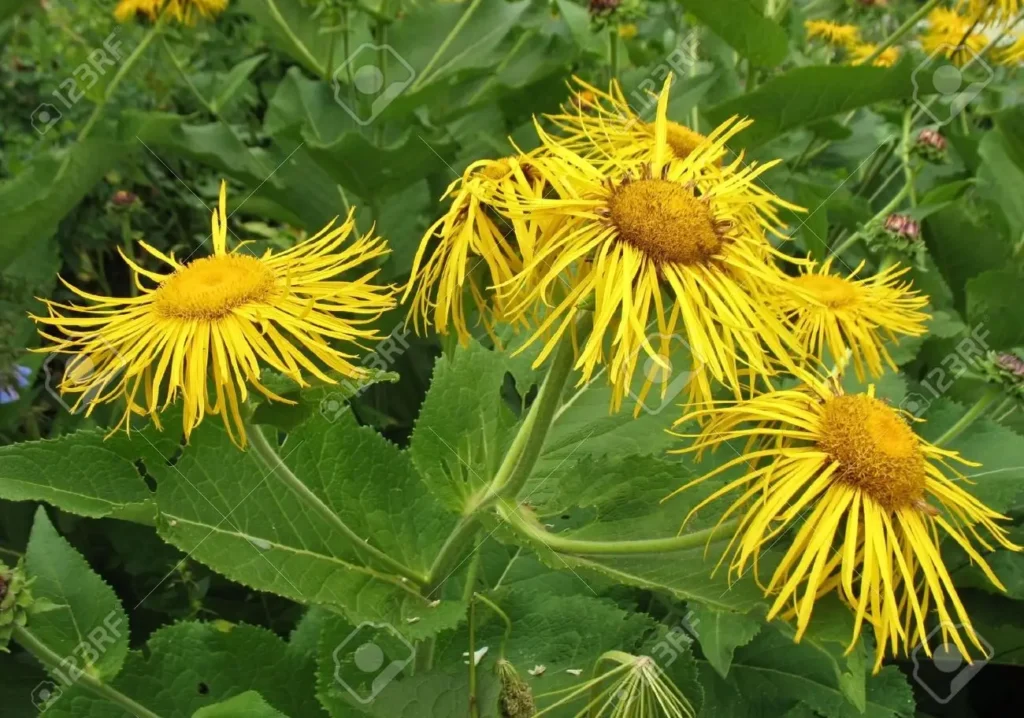
Also known as elfdock and horse-heal, elecampane is a plant common in Europe and Asia.
In India and China, it is used as traditional treatment for asthma and bronchitis.
Inula helenium or elecampe can also prevent and treat pneumonia since it has been proven to be effective against several strains of Staphylococcus aureus [15].
Moreover, extract from the plant was shown to be equally effective against strains that are both resistant and sensitive to antibiotics [15].
Things You’ll Need:
- 1 teaspoon of elecampane (dried)
- 1 cup of water
- 1 teaspoon of honey
Recommended Direction:
- Bring the water to a boil before stirring in the elecampane.
- Turn the heat to medium or low and simmer for about 20 minutes.
- Strain the liquid into a cup.
- Add in honey and mix well.
- Drink morning, noon, and night.
5. Eucalyptus
Eucalyptus essential oil is one of the most commonly used herbal oils for its medicinal qualities.
The oil is extracted from the eucalyptus leaves of an evergreen tree that is native to Australia.
While the aborigines used eucalyptus to treat all types of wounds, the plant’s essential oil has been widely used in everything from air cleansers to anti-dandruff shampoos.
Due to its proven antibacterial, antifungal, and antiviral properties, the most popular use of eucalyptus essential oil is in the treatment of respiratory problems such as pneumonia [16].
In fact, a 2011 study showed that eucalyptus is effective against Staphylococcus aureus, a human pathogen that can cause pneumonia and other serious infections [17].
The result of the research is very promising as Staphylococcus aureus is resistant to typical antibiotics [17].
Eucalyptus, in its nebulized form, also proves to be effective in reducing cases of ventilator-associated pneumonia [18].
Things You’ll Need:
- 1 basin of just-boiled water
- 1 towel (large enough to cover your head and the basin)
- 4 – 6 drops of eucalyptus oil
Recommended Direction:
- Pour the oil into the basin of hot water.
- Mix well.
- Position your head over the basin.
- Put the towel over your head and the basin.
- Inhale the steam for at least 5 minutes.
- Gently blow your nose to expel the mucus.
- Do this at least twice a day until you feel better.
6. Fenugreek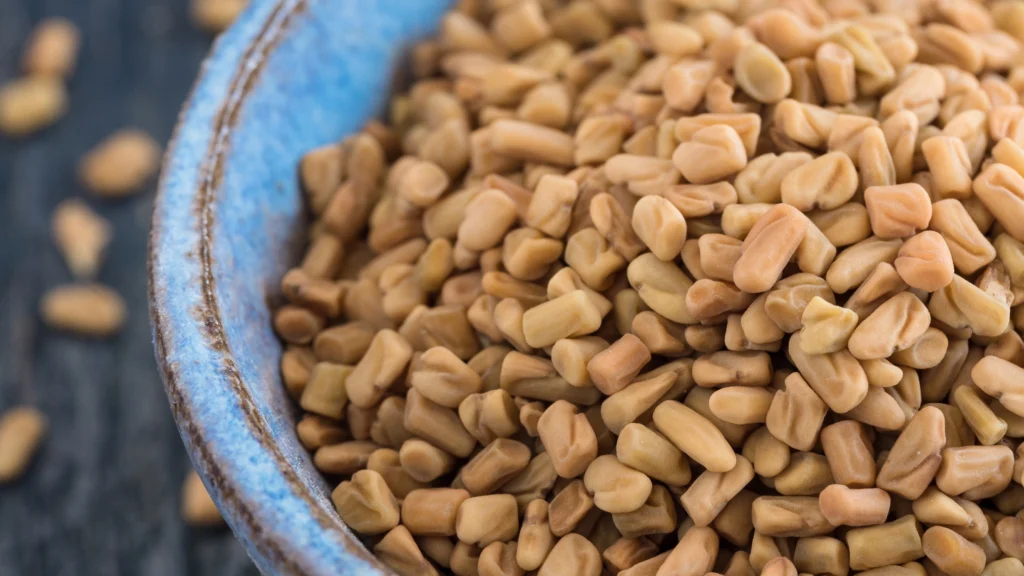
Also known as Greek hay, fenugreek is widely used for its medicinal as well as culinary properties.
The anti-inflammatory properties of fenugreek makes it effective in treating constipation as well as pulmonary fibrosis [19, 20].
The spice has also been used in providing relief from chronic coughs, bronchitis, and tuberculosis [21].
Things You’ll Need:
Recommended Direction:
- Mix fenugreek and honey into the tea.
- Stir until combined.
- Drink once a day to get rid of pneumonia naturally.
RELATED: 14 Benefits of Fenugreek for Your Health (Backed by Science)
7. Garlic
A popular ingredient in most cuisines, garlic is part of the allium family and is related to shallots, onions, and leeks.
However, garlic does more than just make dishes flavorful, it is also able to reduce blood pressure and improve cholesterol levels [22, 23].
In addition, garlic has antibacterial properties that make it effective against pneumonia-causing bacteria, as shown in research published in 2002 and 2010 [24, 25].
Things You’ll Need:
- ½ teaspoon of minced garlic
- 1 cup of milk
- 4 cups of water
Recommended Direction:
- Mix all the ingredients together in a small pot.
- Allow the mixture to boil until only about 1 ½ cups of liquid remain.
- Let the liquid cool.
- Drink morning, noon, and night to treat pneumonia quickly.
8. Goldenseal
A perennial plant that is native to the eastern parts of the U.S., goldenseal is highly prized for its therapeutic uses.
Native Americans used the plant to treat a variety of ailments including skin disorders, conjunctivitis, digestive problems, hay fever, as well as pneumonia and other respiratory conditions.
The efficacy of goldenseal against many health issues is due to its antimicrobial properties.
In fact, research on several herbal extracts showed that goldenseal inhibits the growth of the pathogens M. mycoides capri, E. coli, and B. subtilis [26].
Things You’ll Need:
- 2 teaspoons of goldenseal root (dried)
- 2 cups of water
Recommended Direction:
- Bring the water to a boil before adding in the goldenseal.
- Turn the heat to medium or low and allow to simmer for about 15 minutes.
- Allow the tea to cool.
- Drink morning, noon, and night.
9. Mullein
Mullein, a type of herb that is native to eastern Eurasia and the temperate regions of the north, has been used since ancient times.
It has been known to treat asthma, spasmodic coughs, pulmonary problems, diarrhea, and different inflammatory diseases.
The antibacterial properties of mullein are proven to be effective against Klebsiella pneumonia, Staphylococcus aureus, Staphylococcus epidermidis, and Escherichia coli [27].
Things You’ll Need:
- 2 teaspoons of mullein leaves and flowers
- 1 cup of water
Recommended Direction:
- Bring the water to a boil and add in the mullein.
- Reduce heat to medium or low.
- Simmer the mixture for about 5 minutes.
- Drink the tea once a day.
10. Tea Tree Oil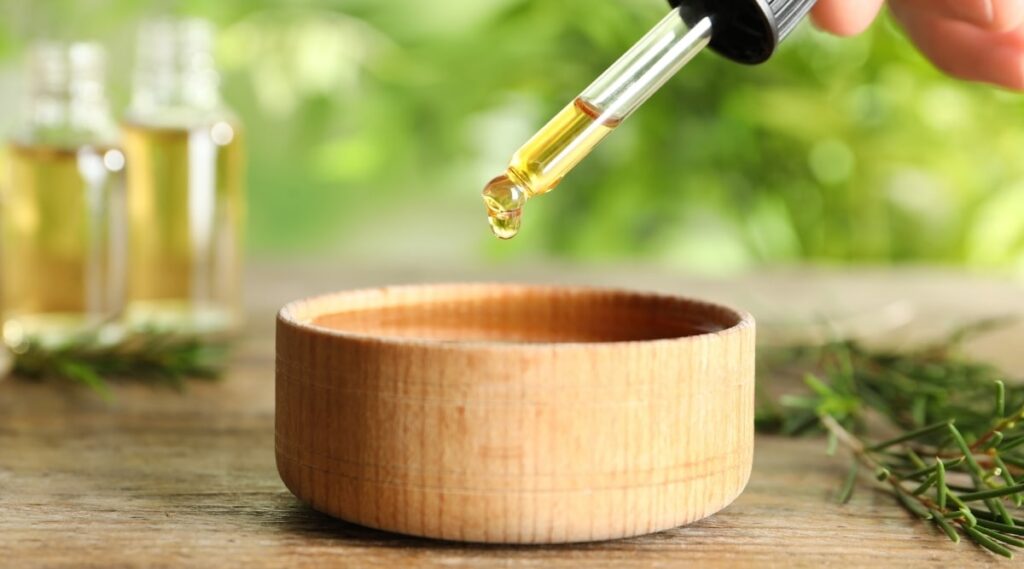
Tea tree or Melaleuca alternifolia, a plant native to Australia, is known for its ability to treat all types of wounds as well as for its potent antiseptic properties.
Essential oil from the plant is widely used in skin care products, household cleaners, and even mouthwash.
Tea tree is also an effective treatment against bacterial and fungal pneumonia, according to the results of a 2016 study [28].
Researchers from China found that the essential oil showed strong in vitro antimicrobial activities on Escherichia coli, Acinetobacter baumannii, Klebsiella pneumoniae, Staphylococcus aureus, and Candida albicans [28].
When inhaled to the lungs, tea tree oil even had higher anti-fungal effect than fluconazole[28].
Things You’ll Need:
- 15 – 20 drops of tea tree oil
- 1 tablespoon of coconut oil
Recommended Direction:
- Mix the oils together thoroughly.
- Rub the mixture on your chest and neck before bedtime.
- Leave the oils on overnight.
- Do this every night.
RELATED: Tea Tree Oil for Keloids : 9 Natural Remedies
11. Turmeric
More commonly known as the spice that gives curry its beautiful golden color, turmeric has been used in India for both its culinary and medicinal qualities.
Also called “Indian saffron,” turmeric has strong antibacterial and antiseptic properties, which is why it is often used in treating burns, cuts, and bruises.
Curcumin, the main active ingredient in turmeric, has shown efficacy against pulmonary inflammation and acute lung injury in a 2010 study published in the Journal of Medical Microbiology [29].
The fact that turmeric has anti-inflammatory properties and that is has been used in the treatment of various respiratory conditions makes it a good alternative treatment for pneumonia [30, 31].
Things You’ll Need:
- 1 teaspoon of turmeric powder
- 1 glass of milk
Recommended Direction:
- Warm the milk (do not boil).
- Mix in turmeric thoroughly.
- Drink morning, noon, and night to get rid of pneumonia fast.
Bottom Line
Pneumonia was a life-threatening disease that claimed many lives, but that was before the introduction of antibiotics and vaccines.
Over time, however, pathogens developed resistance to drugs.
Patients also started developing adverse reactions to medicines, which prompted the need for alternative treatments.
Thankfully, nature offers plenty of options for preventing and treating pneumonia.
Let us know your experience of using any of the natural remedies discussed above. Write in the comment section.
READ NEXT: 12 Home Remedies for Asthma That’ll Actually Work
